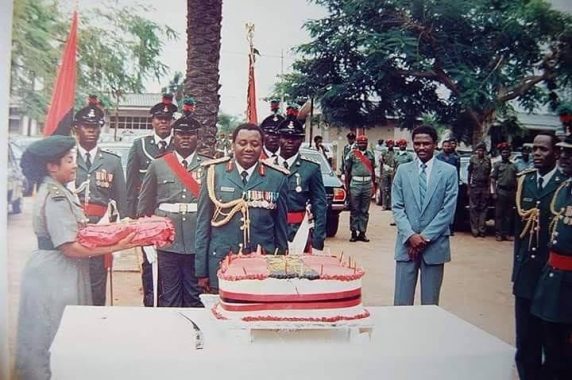
Cult of the Head of State; was a dimension of the institutional decay of military government era, as established in some of the volumes of the Justice Oputa Panel Report .The military is a great and ancient profession, which requires appropriate demeanor and exemplary standard of conduct, encapsulated in the expression professionalism. Yet professionalism in the military, as was clear in various testimonies, even by senior military officers who has been a casualty of military rule in the country, further evidence of this institutional decay, indicated a downward trend. Head of State is elevated to the State and made coterminous with the State, then the cult of the Head of State is created. The personal ambitions of the Head of State, his or her fears and apprehensions; his or her enemies, real or imagined, become matters of State interest and concern, deserving State intervention and state protection, and as borne out by the evidence before the panel, necessitating State-sponsored assassinations, murders and disappearances.
In his evidence before the Commission, Major Al-Mustapha emphasized that he had subscribed to an oath to protect the Head of State and his family as well as the Seat of Government, even if this calls for his making the supreme sacrifice. General Sabo also said in his evidence that the Head of State is but an extension of the State against what is generally believed that the Head of State is but a functionary of the State, and not the State itself. This is made clear in the Presidential Oath in the Seventh Schedule and in the impeachment provisions of the 1999 Constitution of the Federal Republic of Nigeria. Various Nigerian military rulers, like all dictators, were unable to draw this distinction between themselves and the State. Their intelligence outfits danced to their tune and their agents also saw themselves as beyond and above the law. This led to the hounding of journalists and those who criticized their administrations and policies. Intellectuals and human rights activists, among other critics of military rule, were arrested and jailed, without recourse to due process, in the so-called interest of State security.
This attitude was also reflected in the protection given to oil companies, which supplied much of the needed oil revenue to various military administrations. Their interests became State interests, which must be protected. This logically led to the systematic and generalized violations and abuses, which occurred in the Niger-Delta during the dark period of military rule in the country[i].
[i] The News, December 6, 2004
